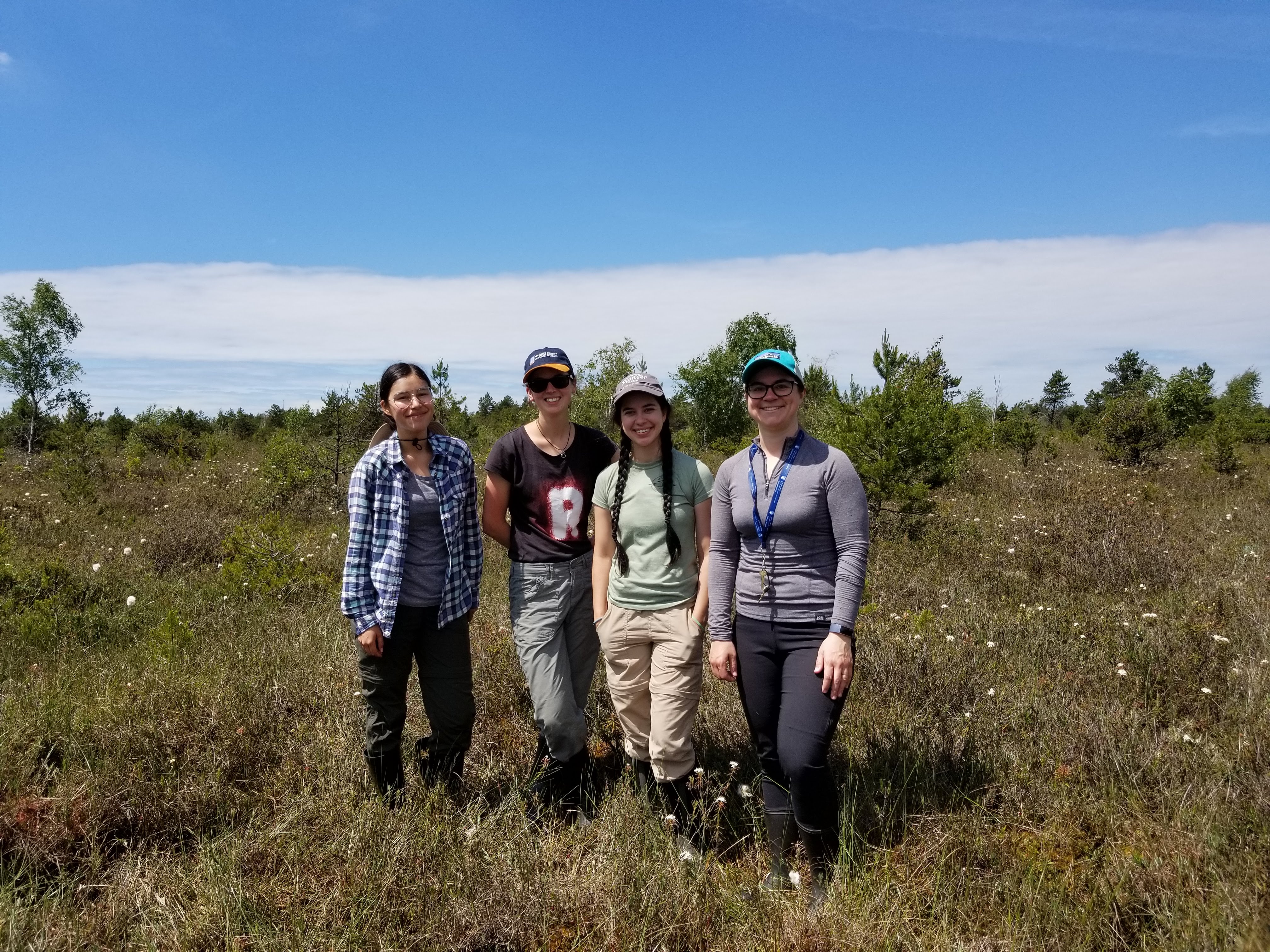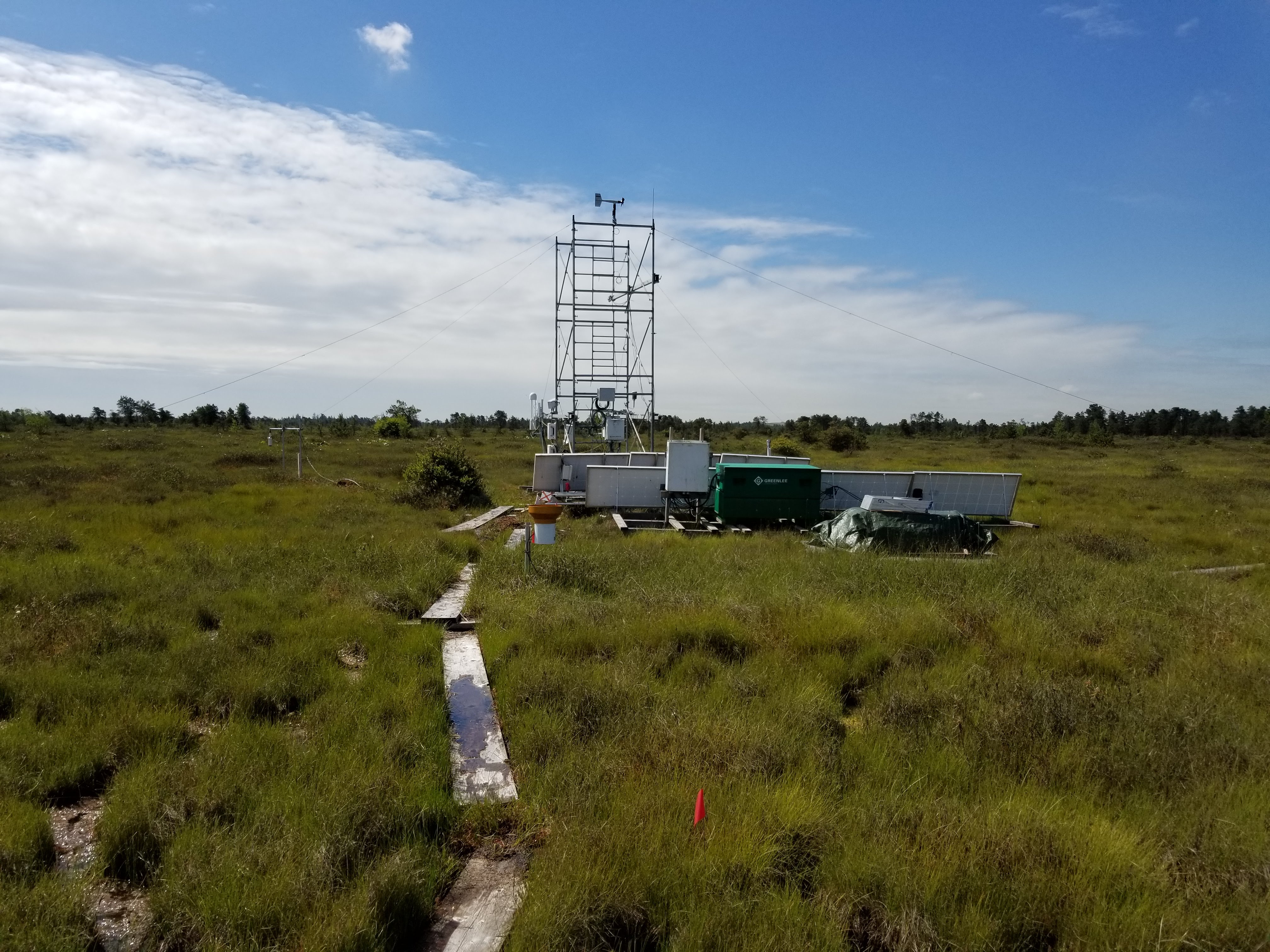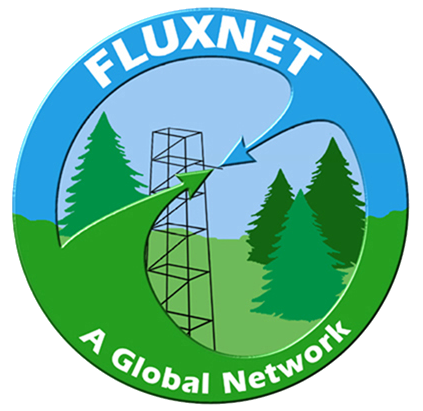Sara Knox is a new assistant professor at the University of British Columbia. She has been a member of the FLUXNET YSN community for several years. Her field sites stretch from California to Canada and she is involved in a global methane FLUXNET synthesis. We talked to her about her career path and about how to best tackle challenges during the transition from a postdoc to a faculty member. Check also Sara’s work on GoogleScholar or on ResearchGate.
You started as an assistant professor in the Department of Geography at the University of British Columbia earlier this year. Please tell us a little bit about your background and your career path.
My undergraduate degree at McGill University was in Earth System Science. I chose this major since it allowed me to combine my passion for science and the environment. As an undergraduate, I was fortunate to work as a field assistant for two summers on projects investigating greenhouse gas emissions from hydroelectric reservoirs in northern Quebec, and glacier recession and water resources in Peru’s Cordillera Blanca. After these two summer experiences, I was hooked on research and decided to pursue graduate studies after finishing my B.Sc. I first completed a Master’s degree in Geography and Environmental Studies from Carleton University in Ottawa, Canada followed by a PhD in Environmental Science, Policy and Management from the University of California, Berkeley. My graduate research focused on measuring and modeling trace gas, water and energy fluxes in restored and natural wetlands.
After my PhD, I knew I wanted to continue to pursue these general research themes, however, having been at higher education institutions for a decade, I decided to explore research outside of a university setting. In September 2016, I started a postdoc at the U.S. Geological Survey in Menlo Park working on a project investigating carbon and water cycling in tidal wetlands. Unfortunately, the timing wasn’t ideal and following the 2016 U.S. election, our funding at USGS was cut which meant my position came to an end sooner than expected. After this disheartening turn of events, I started another postdoc at Stanford University working on an exciting, interdisciplinary project quantifying sources and sinks in the global methane cycle. During the course of my second postdoc, I also felt that the time was right for me to start applying for academic jobs, which is how I ended up at UBC.

UBC Micromet lab at Burns Bog. From left: Aylin Barreras, Marion Nyberg, Cristina Mace, and Sara Knox
What will be the focus of your research group at UBC?
My research group at UBC explores the processes that control trace gas, water and energy fluxes between the land surface and the atmosphere. We investigate how land-atmosphere exchanges of greenhouse gas fluxes respond to a changing climate and disturbances, and how we can modify land management practices for climate change adaptation and mitigation. We combine micrometeorological measurements with remote sensing and modelling to understand soil-plant-atmosphere interactions across a range of spatial and temporal scales.

Flux tower at Burns Bog, an ombrotrophic peat bog located in Delta, BC, Canada (Ameriflux site CA-DBB).
Which experiences during your academic career were crucial for your decision to pursue a career in academia?
There are two primary factors in my academic career that contributed to me pursuing a career in academia. First, I was lucky to have great mentors early in my undergraduate studies who exposed me to the exciting and challenging world of research and life as an academic. Second, while I’ve had great mentors as an undergraduate and graduate student, I’ve always felt like I lacked female role models and teachers in the sciences. This has been a strong motivating factor in my decision to pursue an academic career; I want students to have access to a more diverse group of teachers and mentors. I feel like this is an important step to increasing diversity in science.
When did you start applying for faculty positions? Were there any resources that helped you navigating faculty position applications?
I started to apply to faculty positions in my second postdoc at Stanford University. Stanford had great resources for postdocs applying for faculty positions, which were very helpful during the application process. I attended workshops on how to write a compelling teaching and research statement, how to give an effective job talk, and how to navigate life as a new faculty member. These seminars and workshops were very useful and I strongly recommend taking advantage of similar types of resources if they are available to you. I also recommend workshopping your application package with colleagues and friends; getting feedback from a broad range of people was very helpful when preparing my application package.
How did you prepare for the job interview? Did you encounter any unexpected surprises during the job interview?
When preparing for the job interview, I again reached out to colleagues and friends to get feedback on my research and teaching talks. Having the opportunity to practice your talks multiple times in front of different audiences is great preparation for the job interview. I also spoke with colleagues and friends who had recently been through the process to discuss what questions they were asked during their interviews. This was also a very valuable exercise when thinking about how I wanted to design my own lab and research program. I also spent time researching the faculty members in my prospective department and other departments on campus. This not only helped during the interview process with one on one meetings with faculty, but it also gave me a better sense of the department and my potential role within it and the campus community more broadly.
One of the aspects I found most surprising about the job interviews I did was how fun they were. While I was certainly nervous and anxious during the interview process, I really enjoyed all the interesting and stimulating conversations I had with prospective colleagues, and how welcoming the departments were. After my interviews, I felt more at ease and felt like no matter what happened, at least I had given it my all and had a positive experience.
In your opinion, what was the most challenging part of transitioning from postdoc to faculty?
One of the most challenging aspects of being a new faculty member is navigating all the new tasks and responsibilities – from teaching new classes, to applying for new grants, to setting up a lab, to new service responsibilities. Nearly everything at the start is new, which on top of past responsibilities from your postdoc that your carry forward with you, makes for a very busy start.
What are the three most important pieces of advice you want to give other early career scientists for the first few months in such a position?
The first piece of advice is that it’s normal to feel overwhelmed at the start. This is not just based on my own experience, but also what I heard from numerous friends and colleagues who recently started faculty positions. It was comforting to talk with others in a similar position and hear that things get easier after the first few months. I certainly found those first few months the most challenging, but with time everything becomes a little easier and more familiar. Along these lines, finding a good network of peers and mentors is important. Having support from colleagues both in the early and later stages of their careers is very helpful when navigating the challenges of a new faculty position. Finally, finding some time for yourself is key. With all the new obligations and commitments, it often feels like there is very little time, but it’s important to take breaks and do the things you enjoy outside of work.
